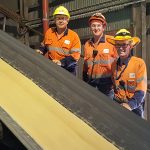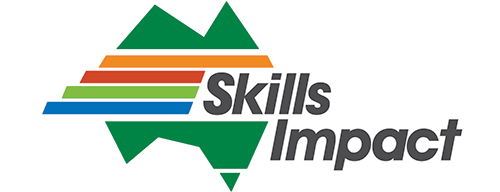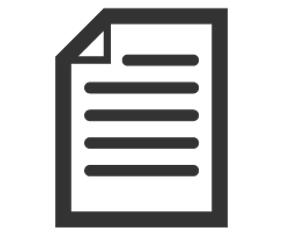Sugar Milling Project
Menu: Click across the green arrows to view active and completed project stages. Consultation takes place at every stage of the project.Case for change
Australia’s sugar milling industry regularly uses the national qualifications to develop training and define skills requirements for various roles. However, they are not formally delivered or assessed by any registered training organisation (RTO) at present. At the same time, technological advancements and new practices adopted from other industries are changing the skills required of workers within the sector. A review and redesign of current sugar milling qualifications and units of competency is proposed, to reflect these changes in industry environment and to encourage use of sugar milling skills standards within the VET system.
The Australian Industry Skills Committee (AISC) approved this project, out of the 2021 Annual Update IRC Skills Forecast and Proposed Schedule of Work.
The Food, Beverage and Pharmaceutical Industry Reference Committee (IRC) will oversee this project as part of their responsibility to support engagement with the sector, and to ensure the project meets industry stakeholder needs.

Skills Impact will manage this project, consistent with the 2012 Standards for Training Package Development.
Project Plan
Sugar milling is one of Australia’s largest rural industries, employing 23,000 people and contributing $4 billion to the Australian economy a year, according to the Australian Sugar Milling Council. Employees in this industry draw on a vast array of skills throughout the milling cycle, including expertise for operating machinery, performing complex processes, working compliantly in laboratories, and driving large vehicles. Over recent years the nature of the industry has been evolving, with innovations in bioproducts including producing biofuel. The workforce has also changed over the years, with increasing automation meaning fewer people are required on the ground. As such the skills and training needs of the industry have also changed.
While the sugar milling industry regularly uses the national qualifications and skills standards for workplace training and defining job roles, they are not currently delivered or assessed by any registered training organisation (RTO). Industry feedback to date suggests a lack of support for qualifications offered through the VET system. Consultation will take place throughout this project to examine the implication of the feedback received to date.

Project Scope
The Certificate II in Sugar Milling Support and the Certificate III in Sugar Milling Industry Operations will be reviewed, along with 41 units and one skill set. There is potential to consider including the skills as specialisations associated with sugar milling in certificates II and III in food processing if industry and RTOs believe this will result in improved delivery and outcomes for all. This would assist to simplify the skills system by deletion of two standalone qualifications and increasing industry’s and workers access to training and career path solutions.
(Note that these two food processing certificates have just completed a review in 2020-21, so would not undergo a full review as part of this project, only the addition of a specialisation for sugar milling if deemed necessary).
Subscribe to updates about the projectSubscribe to the Skills Impact newsletter to keep informed about project updates and opportunities to provide input and feedback. Make sure to select ‘Food, Beverage and Pharmaceutical’ as your industry of interest. |
Relevant Occupations
- Crushing assistant
- Sugar mill worker
- Sugar services operator
- Sugar processing operator
- Sugar transport operator
- Refinery operators
Project Team
| Susie Falk | Industry Skills Standards Specialist, Skills Impact | [email protected] |
| Julie Stratford | Industry Engagement Manager, Skills Impact | [email protected] |
| Peter Miller | Industry Skills Standard Contractor |
Timeline
August 2021
Initial scoping
September 2021
Development of draft qualifications, skill sets and units
September/October 2021*
Drafts available for broad consultation
November 2021*
Validation of final drafts
January/February 2022
Finalisation of Training Package components
February/March 2022
Independent Quality Assurance, and Edit and Equity review of Training Package components
April 2022
IRC consideration for sign-off and submission for endorsement
*To be confirmed with subject matter expert working group
Opportunities for stakeholder input
Experienced sugar millers and others with knowledge in this field who are able to describe the skills needed for this industry are invited to engage with this project.
It is important that training provides a skilled and flexible workforce for the future. The qualifications, skill set, and units need to reflect real work experience. So, if you work in the sector, Skills Impact welcomes your input and assistance.
The skills standards will be drafted in consultation with Subject Matter Experts and their networks. Opportunities to provide targeted feedback will occur when the draft skills standards are made available in September/October 2021, and again for validation of final drafts in November 2021. However, your feedback is welcomed at any time, and will help us in drafting the qualifications, skill set and units.
Please register your interest in project updates and consultation opportunities by following the newsletter subscription link. Alternatively, contact the project manager, Susie Falk [email protected]
N.B. webinars will be held to replace face-to-face consultation workshops where necessary due to COVID-19 related restrictions.
Stakeholder Consultation Process
A list of key stakeholder organisations has been identified for this project based on their industry role, size or specialty. Skills Impact will ensure contact is made with each of these organisations to seek their involvement and views on all draft qualifications, skill set and units. Consultation is not limited to the organisations on this list, they have simply been identified as the most likely to have a key interest in the development and outcomes of this project
If you are aware of an organisation that you think should be involved, please contact the project team to ensure they are contacted by us.
Development
Employees in Australia’s sugar milling industry utilise a range of skills throughout the milling cycle, including expertise for operating machinery, performing complex processes, working compliantly in laboratories, and driving large vehicles. It is one of Australia’s largest rural industries, employing 23,000 people and contributing $4 billion to the Australian economy a year, according to the Australian Sugar Milling Council.
While the sugar milling industry regularly undertakes training of their staff in-house, in recent years they have not made use of registered training organisations (RTO) for delivery or assessment. Extensive consultation has taken place with industry experts, during which it was indicated that the national qualifications, units of competency and skill set for sugar milling will not be used for the delivery of formal training in the future. Therefore, there is no need to review and update the qualifications, units and skill set as part of this project.

Development outcomes and next steps
The Food, Beverage and Pharmaceutical IRC responsible for this project has informed the Department of Education Skills and Employment about the situation. The DESE is now considering the early conclusion of this project and if this is the case all components within scope of this project will be deleted (archived) from the national training register (training.gov.au).
Qualifications, skill sets and units of competency will remain available on the national training register in their current form for reference only. They will not be updated or available for use by RTOs.
Please note that there are four units of competency that will not to be deleted, as they out of scope of this project and sit within both current food and beverage processing (FBP) and meat processing (AMP) qualifications and need to be retained:
• FBPSUG2022 Operate a waste water treatment system
• FBPSUG2024 Perform standard tests on cane samples
• FBPSUG3007 Perform factory control tests
• FBPSUG3008 Analyse and convey workplace information.
Subscribe to updates about the projectSubscribe to the Skills Impact newsletter to keep informed about project updates and opportunities to provide input and feedback. Make sure to select ‘Food, Beverage and Pharmaceutical’ as your industry of interest. |
Drafts Available
The project did not proceed to this stage. Industry has determined that the qualifications, skill set and units did not require review as they were not going to be used for VET sector training delivery in the future.
Validation
The project did not proceed to this stage. Industry has determined that the qualifications, skill set and units did not require review as they were not going to be used for VET sector training delivery in the future.
Finalisation
Sugar milling is one of Australia’s largest rural industries, employing 23,000 people and contributing $4 billion to the Australian economy each year, according to the Australian Sugar Milling Council. Employees in this workforce possess a range of skills throughout the milling cycle, including expertise for operating machinery, performing complex processes, working compliantly in laboratories, and driving large vehicles.
The sugar milling industry regularly undertakes training of their staff in-house, negating the need for registered training organisations (RTOs) to be utilised for delivery or assessment. Consultation took place at the commencement of this project to consider how the current skills standards for sugar milling could be reconfigured to reflect industry requirements and be more accessible for training providers to deliver. As the project moved into the development stage, feedback from industry indicated that delivery of formal training using the national qualifications, skill set and units of competency was not likely in the future. Industry determined that the review should not continue.

The Food, Beverage and Pharmaceutical IRC responsible for this project informed the Department of Education Skills and Employment (DESE) about the feedback received. The DESE confirmed the early cessation of the project and that the qualifications, skill set and units should be deleted (archived) from the national training register (training.gov.au).
The qualifications, skill set and units were archived from the national training register on 20 April 2022. They will remain available on the national training register in their current form for reference only. They will not be subject to future reviews or updates or available for the delivery of nationally recognised sugar milling training by RTOs.
There are four units of competency that will not to be deleted as they sit within both current food and beverage processing (FBP) and meat processing (AMP) qualifications and need to be retained:
• FBPSUG2022 Operate a waste water treatment system
• FBPSUG2024 Perform standard tests on cane samples
• FBPSUG3007 Perform factory control tests
• FBPSUG3008 Analyse and convey workplace information
Please find links to the archived qualifications, skill set and units below.
| Skill set code and name |
| FBPSS00017 Sugar Lab Skill Set |
Subscribe to updates about the projectSubscribe to the Skills Impact newsletter to keep informed about project updates and opportunities to provide input and feedback. Make sure to select ‘Food, Beverage and Pharmaceutical’ as your industry of interest. |

